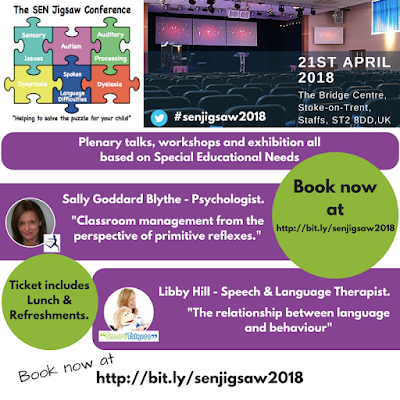Dyslexia & Co-occurring Conditions.
What does 'being dyslexic' look like?
This post will explore what it means to be 'dyslexic'. The British Dyslexia Association states that 10% of the UK population is likely to have dyslexia, but this term is a confusing term for so many people because it describes a range of possible 'issues' and is very much not a 'black and white' term or, indeed, diagnosis for many.
Before you read on, I would like you to do something for me. I would like you to get a pen and paper and give yourself a minute to write down how you would define the term dyslexia?
The behaviour presented from being dyslexic is different from one person to another. There are of course general trends, but it would be wrong to assume how someone with dyslexia actually experiences dyslexia. Part of the problem is that if one has dyslexia, then they could also be experiencing aspects of other similar conditions such as Dysgraphia, Dyscalculia, Dyspraxia, Autistic Spectrum Disorder and so on.
This complicates understanding as these 'Co-Occurring Conditions' affect how one thinks and behaves, certainly in a classroom scenario.
-----------------------------
-----------------------------
The picture below by Mary Colley is a great illustration as to how people with these conditions, who are often described as 'Neuro-diverse' thinkers, may be experiencing aspects of a range of conditions where some of those aspects are more prevalent for one person than another. You could say that a near-diverse thinker has a 'profile' which is very much unique.As you can see, this illustration shows that these conditions can overlap, and whilst this illustration is very neatly and evenly drawn, when one is 'near-diverse' aspects of these conditions do not present in a even way. For example, in my family, my youngest daughter is 'Dyslexic' mainly in behaviour (processing information), experiences some problems of a dyscalculic nature and can struggle with concentration, if I compare her dyslexia with issues that I have experienced, I would describe my issues as having a strong difficulty with reading and processing information, I can have real problems with my spatial awareness at times (especially when tired) and my concentration when working is awful, often needing breaks and finding myself procrastinating a lot. I also find that I can also 'trip up' over what I want to say, so I will try to say something which is clear in my head but it comes out in an incoherent way! I once got very excited about something at a party and just hard to shout out what I was thinking. I knew what I wanted to say, but everyone else in the room were incredulous as what I said was incoherent! I am a 45 year old guy, surely I must be able to talk properly! It is just part of how I am and I am different to other people who are near diverse.
So my daughter and I have similar issues surrounding neuro-diversity but they are not the same.
In an earlier blog article I have defined some of the conditions that are described in the diagram above.
I hope that this short blog post gives you a sense of how no two dyslexic thinkers are the same. I would love to know more about your experiences if you are 'dyslexic' and please do comment on this blog post.
 |
| Book your place today - Click Here. |










No comments: